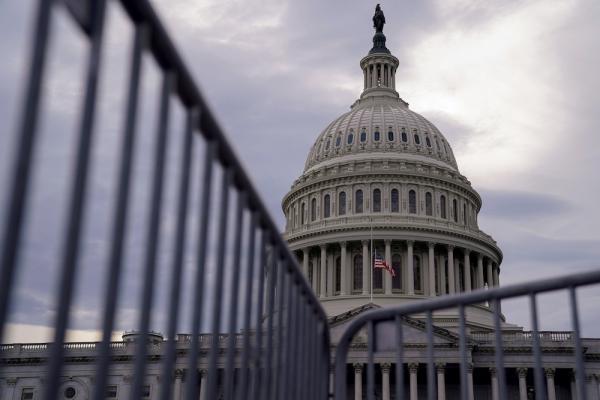"Speak up and judge fairly; defend the rights of the poor and needy." Proverbs 31:9
This scripture passage states clearly that advocating for justice is part and parcel to living out our faith. As the late Congressman John Lewis might put it, discipleship requires that we “get into good, necessary trouble.” This is a call that we must all take seriously and respond to amid this week’s high-stakes negotiations around what will likely be the final stimulus bill before the new year.
The biblical prophets consistently proclaimed the consequences of defying God’s will. They also affirmed God’s priority to protect the vulnerable and marginalized among us. In the times of Amos, Ezekiel, Micah, Isaiah, and Jeremiah, this meant protecting the orphan, the immigrant, the widow, and the poor. In Where Have All the Prophets Gone?, one of my favorite books about prophetic preaching, Dr. Marvin McMickle writes, “With an urgency that could not be contained and a fervor that could not be controlled, the prophets declared ‘Thus says God’ despite the ridicule, rebuke, and outright rejection that most of them experienced throughout their lives.” As we experience this escalating pandemic that has laid bare deep-seated racial inequities and systemic racism, we too must say to our elected officials, “Thus says God” about who must be protected amid the dire consequences of negligent leadership and immoral priorities.
The U.S. is averaging more than 1,000 deaths from COVID-19 per day. As the pandemic drags on, the United States’ staggering failure to control the spread continues to have devastating impacts not only on those who are getting sick and tragically losing their lives — more than 150,000 people just in the U.S. — but also on the ability of tens of millions of people to put food on their tables and keep a roof over their heads. The expiration of the $600 per week in additional federal unemployment insurance last week was coupled with the end of a federal moratorium on evictions in properties that receive federal funds or financing — both provisions were included in the $2 trillion CARES Act passed in March.
We have been arguing for months that there is no curing our ailing economy without arresting the COVID-19 public health crisis. The widespread prevalence of the virus throughout the nation (some of the best-regarded modeling suggests that the true number of infections is much higher than has been reported and between 4 and 9 million Americans are actively infected with the virus that causes COVID-19 as I write this, with anywhere from 250,000 to 600,000 new U.S. infections every day) means that the return of economic activity like tourism, hospitality, performing arts, and dining that kept tens of millions of Americans employed, fed, and housed is still months if not years away. As a result, it is reckless that provisions of the CARES Act were allowed to lapse in the first place, and vital that as many of them as possible are reinstated in order to stave off widespread human suffering and economic collapse that will make what has happened already look mild in comparison.
Already, we’ve seen a frightening rise in just the last few weeks in the number of families who cannot afford to put enough food on the table and/or have fallen behind on rent or mortgage payments, which suggests that additional government assistance cannot arrive soon enough. In the last five weeks, fully 30 percent of U.S. children lived in households with either food or housing hardship, including 44 percent of children with Black caregivers, 38 percent of children with Latinx caregivers, and 22 percent of children with white caregivers. Among other things, this means that nearly all of us know families currently struggling to make ends meet, whether they have made it known or not. Recent news stories have told heartbreaking stories of what losing the supplemental unemployment insurance will mean for real people who have just barely been getting by with that benefit, as well as others who have faced numerous obstacles and delays to getting help in the first place.
SNAP is a key food security program that would help with immediate needs while also having the added benefit of putting much-need cash into local economies as people buy groceries. Economists have shown that SNAP is among the most beneficial programs to address real needs while also providing economic stimulus. To not include an increase to SNAP benefits in light of this crisis would be unconscionable.
Meanwhile, the president is threatening to take unilateral action as ongoing negotiations between the White House and leadership in both political parties have failed to result in a deal. Members of Congress are rightly concerned about the wrath of their constituents if they leave Washington for the rest of August with unimaginable numbers of Americans at risk of hunger and homelessness in the middle of a pandemic. We must continue to demand that our elected officials secure a deal that adequately helps all who need it, especially as current reporting suggests that the two sides are still far apart on what should be in the final bill. House Democrats passed a sweeping, $3.4 trillion bill in May, which is meant to be a continuation and expansion of the CARES Act, and includes provisions for unemployment insurance and help for those struggling to pay their rent or mortgage. But even that bill falls short of addressing people’s actual needs. Meanwhile, Senate Republican leadership recently unveiled a much smaller $1 trillion bill that did not even have unified support of the Senate Republicans, and which is thoroughly inadequate across the board to meet the scale of what people need right now.
As one example of the level of debate, a sticking point in negotiations is the amount of money recipients of unemployment insurance should receive: House Democrats propose that it be kept at $600 per week, while many Senate Republicans are pushing for $200, arguing the higher amount will be a disincentive for some of the lowest paid workers to return to the workforce. Data to date does not support these Republicans’ argument, and it’s important to understand that these workers were already being paid woefully inadequate wages. Far too often, conservative politicians and Christian leaders default to blaming people for their circumstances, questioning their work ethic or motives. The prophets didn’t spend time blaming or demonizing people for their poverty. Instead they challenged rulers, leaders, and even systems that perpetuated the very conditions that caused poverty and suffering.
Since this is almost assuredly the last major stimulus bill before a new Congress is elected in November, the stakes couldn’t be higher. In addition to the desperate and long overdue need to expand SNAP benefits, expand state aid to assist with the safe reopening of schools where possible, and to expand funding for testing and the public health response, it is imperative that Congress provide $3.6 billion in desperately needed resources to ensure that states can conduct free, fair, and safe elections. It was encouraging to see bipartisan condemnation of President’s Trump’s dangerous tweet last week suggesting that due to alleged fraud associated with vote by mail, the election should be postponed. But it is a failure of leadership for Republicans to oppose granting states the resources they need to put in place the infrastructure that will be necessary. There is also a desperate need to include at least $10 billion in additional resources to the U.S. Postal Service in order to ensure it can effectively manage the surge in mail in ballots for this election.
It didn’t have to be this way. The failure to control the virus is inextricably connected to a federal economic response that has never met the scale that would have been necessary to achieve the success other nations are seeing. Many Western European nations, for example, which had much stronger social safety nets in the first place, were able to transition fairly seamlessly to a system that paid everyone to stay home, while our nation wasted weeks negotiating an initial bill that has subsequently been unevenly implemented in different states. The fact that so many more people have fallen through the cracks of the U.S.’s coronavirus economic relief measures has meant more people were forced to risk their health and further spread the virus in order to make enough money to survive. If Congress doesn’t act swiftly and comprehensively to renew and expand key provisions of the CARES Act, like expanded unemployment insurance and relief from eviction or foreclosure, things will almost certainly get unimaginably worse.
Will you join us in speaking up in this perilous moment to fight for the funding that is needed to support people and the public health response to the COVID-19 pandemic? Will you use your voice to defend the rights of the those in need? As we remember the public and prophetic witness of the prophets of old, I hope and pray that you will join us in putting your faith into action.
Got something to say about what you're reading? We value your feedback!






